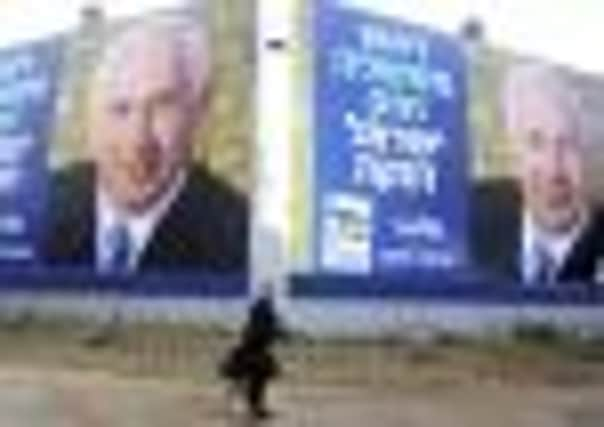Key figures in Israel’s march to Right


He is on track for an easy re-election, with the real question being who will emerge as his coalition partners and how will the election impact on the rising starts of the nationalist camp?
Danny Danon, 41, from Mr Netanyahu’s Likud party and Naftali Bennett, 40, from the pro-settler Jewish Home party, have emerged as the vanguard of the new, more strident, unapologetic Israeli right-wing.
Advertisement
Hide AdAdvertisement
Hide AdIn a recent interview, Mr Danon signalled that the international community should forget about a two-state solution, to which Mr Netanyahu gave qualified endorsement in 2009. Instead, Israel should annex the Jewish settlements and open land in the West Bank, leaving the Palestinians with scraps.
“I believe the ones who need to be in blocs are the Palestinians and not the settlers in Judaea and Samaria,” he said.
“We have to do what is good for us and to ignore foreign pressures,” he added.
Mr Bennett is also trying to outflank Mr Netanyahu from the Right. He advocates annexation and calls for the doubling of the Israeli settler population to around one million.
If Jewish Home scores well, as is expected, chances are the peace process will go into an even deeper freeze, with Mr Netanyahu choosing it as coalition partner.
That prospect did not seem to worry Israelis taking in the latest election news with their morning coffee at a café in West Jerusalem yesterday. Embittered by the failure of the Palestinian self-rule agreements and the perception that there is no-one to talk to on the other side, many if not most Israelis don’t believe meaningful peace negotiations are possible in the short term. It is in this atmosphere that Messrs Netanyahu, Danon and Bennett are thriving.
Several diners said that, with Israel likely to clash with Europe over further settlement in the West Bank, it is best to have a strong showing for Jewish Home so that Mr Netanyahu does not cave in to pressures.
“I want to see decisions made based on what is good for Israel, not for Europe,” said Haim Ben-Hrosh, 30, a property dealer who voted Likud in 2009.
Advertisement
Hide AdAdvertisement
Hide AdUri Sasson, 50, a construction manager, said he has not yet decided for whom to vote but that it would be for a “strong” candidate. “We need someone strong because of the security situation. We have to be strong against the Palestinians and the Arab world.”
In their competition for the right-wing religious vote, both Mr Netanyahu and Mr Bennett, a millionaire former technology executive, have been stressing that they will uphold Jewish values. Recently re-establishing a Bible study circle at his residence, a tradition started by state founder David Ben-Gurion, he said caution was needed in a Middle East filled with dangerous changes, and that there could be no territorial concessions to the Palestinian Authority.
Mr Bennett’s campaign advertisements, meanwhile, feature him complaining that in recent military campaigns the political leadership “didn’t allow us to win” and that the government was wrong to settle for a stand-off in the November war with Hamas in Gaza.
Mr Bennett aims to attract young Israelis beyond his religious base, saying: “I love Israel, the land of Israel, the Bible of Israel, the Israel Defence Forces. If you feel like me, your place is in the Jewish Home.’’